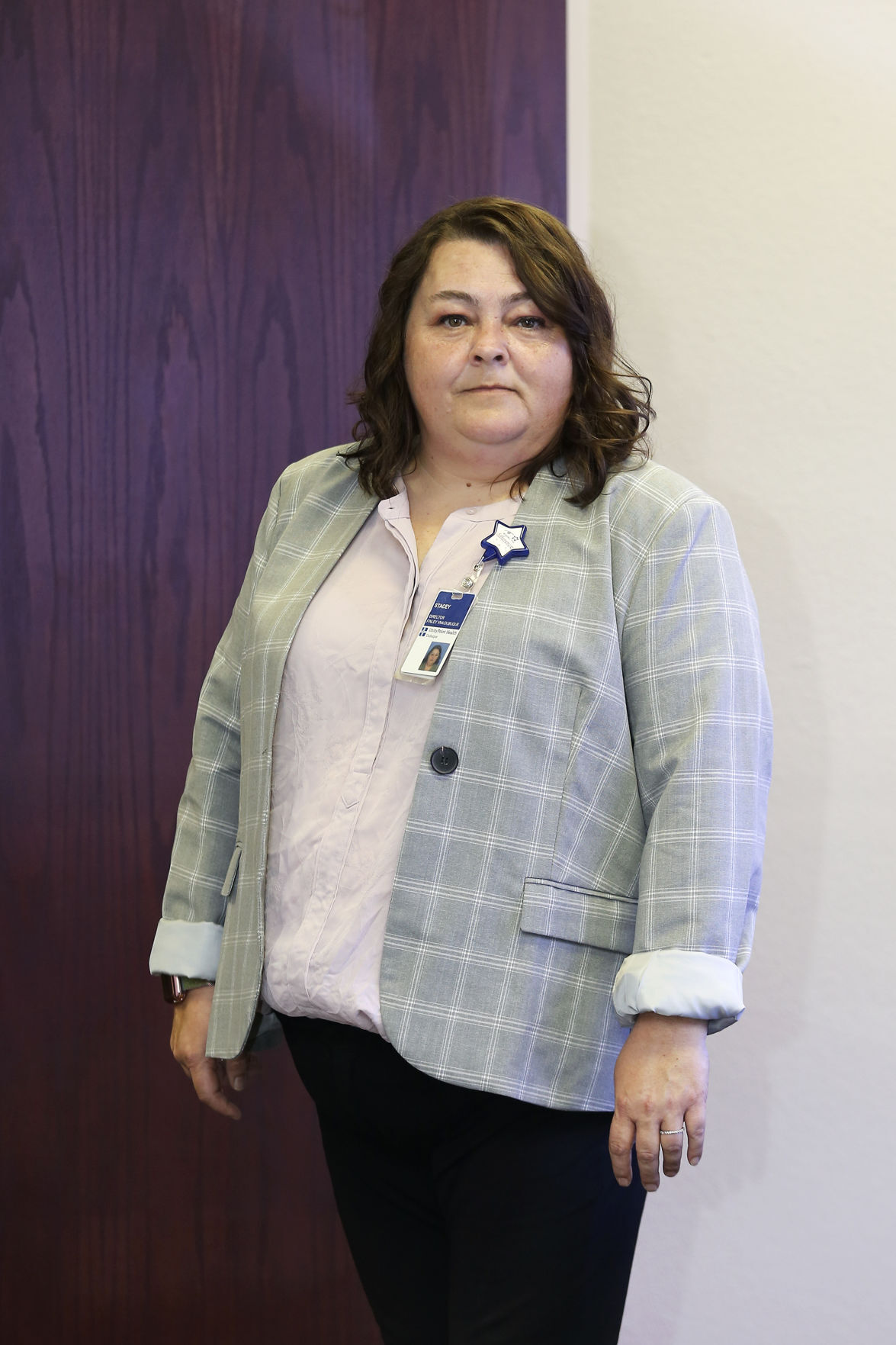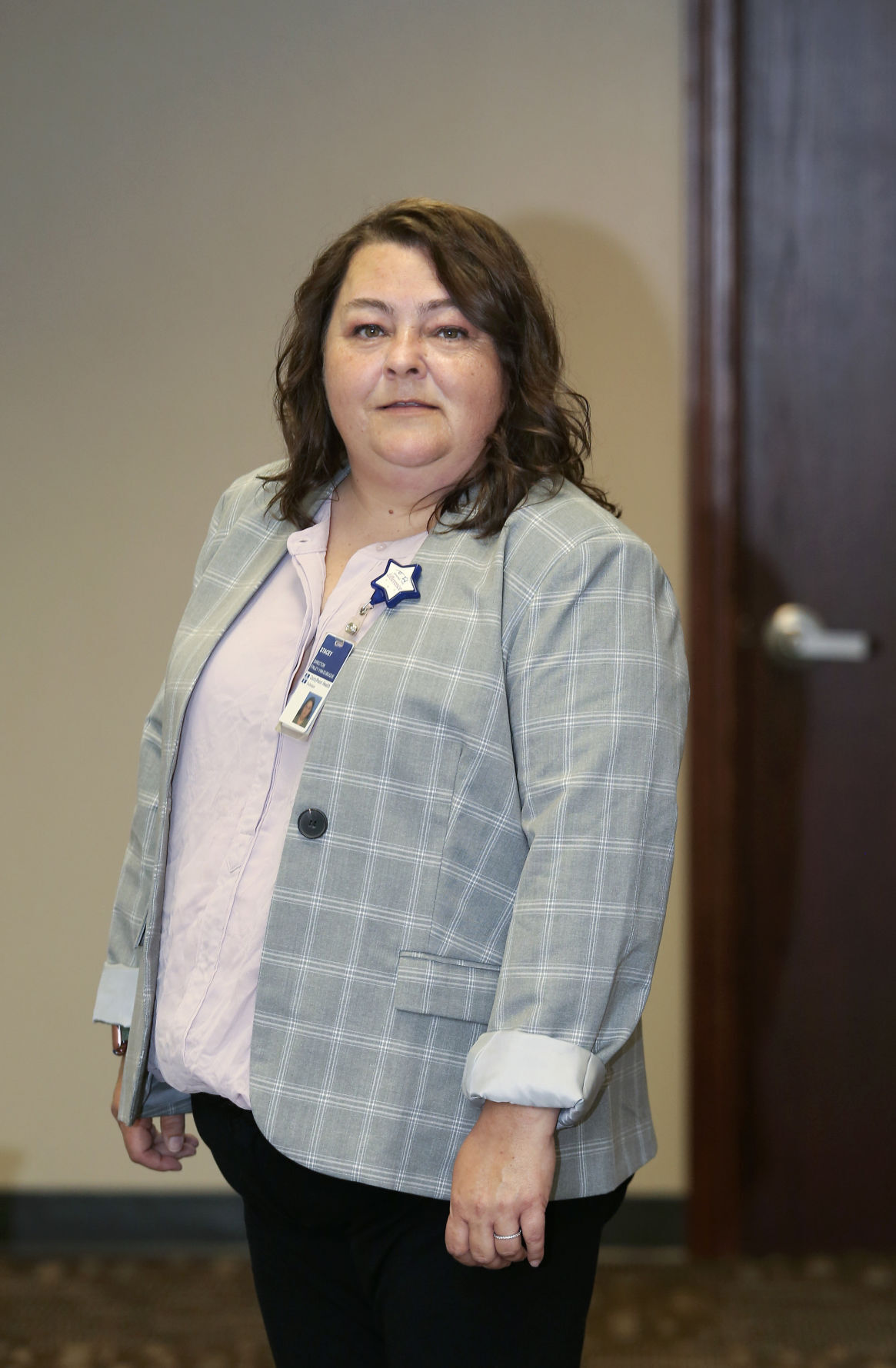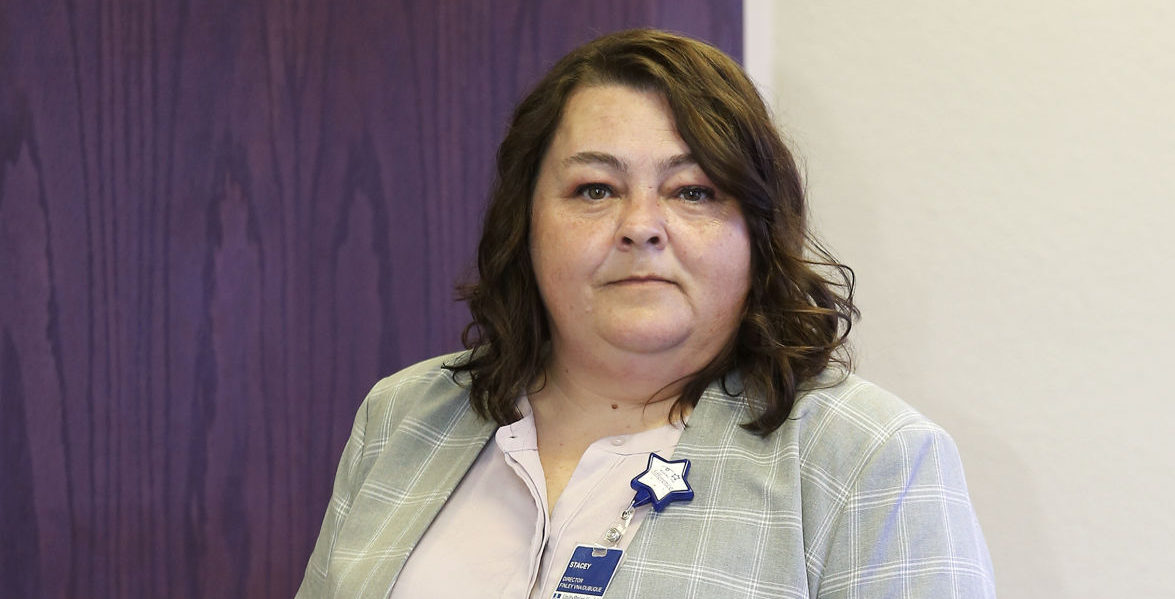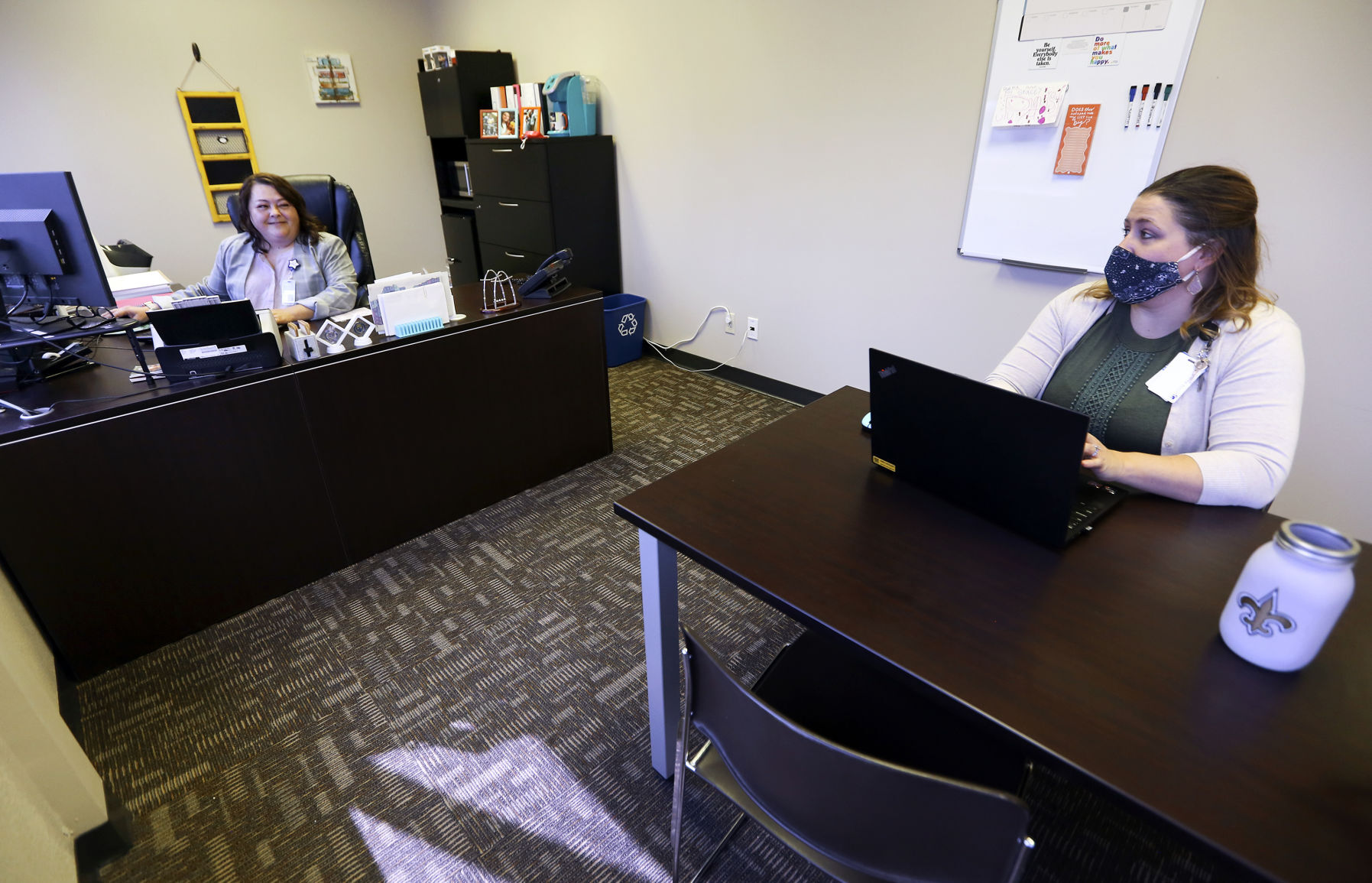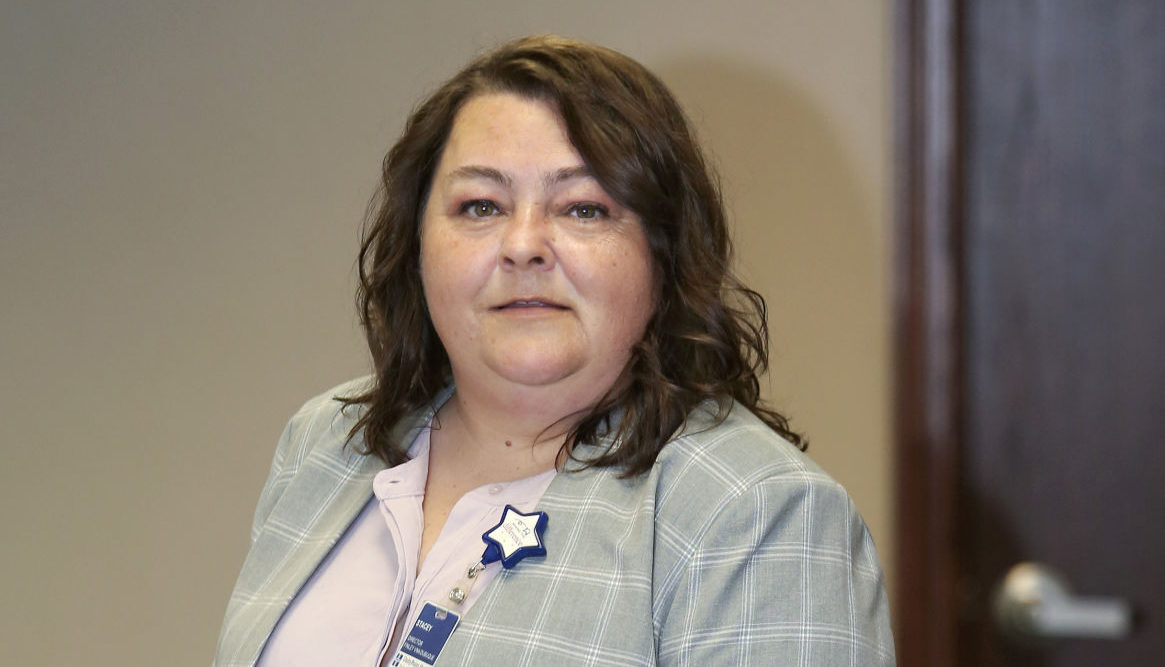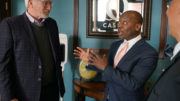Stacey Killian is the director of the Dubuque Visiting Nurse Association. Killian grew up and has lived most of her life in Dubuque.
She has spent her entire career at the VNA, starting in college as an intern in VNA’s Parent Education program. She graduated college and worked as a case manager and coordinator of VNA’s maternal, child and adolescent program. She moved up to manager in 2014, then director in 2015.
Killian and her husband, Mike, and have three daughters Katelyn (Ben), Rachel and Natalee. She loves spending her free time traveling, cooking and reading.
Can you name a person who has had a tremendous impact on you as a leader?
Mary Peters, chief nursing officer with UnityPoint Health-Finley Hospital, has had the largest impact on me as a leader. I have a tremendous respect for her leadership style; she leads with kindness, compassion and conviction. She understands public health and always will fight for those in need. Peters is a great asset to UnityPoint Health VNA, as well as our community. As a mentor she has guided me, at the same time allowing me independence to cultivate my confidence as a leader.
What are the most important decisions you make as a leader of your organization? Every day I am tasked with making decisions on staffing, workload, program requirements, grant opportunities, fiscal responsibilities, community needs and operational efficiencies. Ultimately, decisions are equally important and contribute to keeping the VNA sustainable. What I find as the most important component is looking at how each of these everyday decisions will ultimately impact VNA. In my years in leadership I have learned to always look at the big picture. What feels like a small decision can lead to bigger, more impactful changes so I have learned to not make a rash decision but envision how we can incorporate these decisions overall as an agency.
As an organization gets larger, there can be a tendency for the “institution” to dampen the “inspiration.” How do you keep this from happening?
I think it is important as an organization to share in our successes and challenges. We need to continue connecting the work we do with the outcomes in the community. To celebrate our successes and truly see the impact we have on the lives of the patients we serve is to inspire us to continue. Public health can be very stressful. Often we are asked to take on more work; many of the patients we see are vulnerable or in crisis. We are sometimes faced with challenges we cannot fix. We worry about compassion fatigue and burnout. VNA focuses strongly on unity. Our values center around the importance of every team member. We highlight our successes from within and stand together as a team in times of crisis.
Which is more important to your organization – mission, core values or vision? I believe all three are critical components to the success of any organization. You need a strong mission to identify who you are, and the core values to successfully guide and implement your mission. Finally, you need a broad vision to continue growing and sustaining your organization. With a clear vision into what you are capable of becoming, a strong core value system to lead you to that vision and a mission that defines who you are as an organization, you will ultimately continue finding success.
What is one characteristic that you believe every leader should possess? Communication. You need to have the ability to communicate effectively with people. To be successful you need to have buy-in from your team; you need them to see and believe in your mission. You need to be able to communicate the needs of your patients; you need to be able to communicate your organization’s mission to the community. Any successful organization will be driven by your team and their ability to envision a strategic path that aligns with your mission. To have that, there needs to be open communication from leadership all the way through to patients being served.
What advice to you have for future leaders? I never set out to become a leader in public health. My love and passion for VNA led me in this direction. Looking back through the years at the VNA, this position has changed and humbled me the most. I would tell future leaders to grow and change with your organization. Don’t be afraid to take a risk, and most importantly don’t fear change — embrace it and allow it to lead you toward future successes.
What lessons can leaders take away from the current pandemic? COVID-19 has changed me immensely as a person and leader. VNA has had years of emergency preparedness training and yet you can never be prepared enough. We are living through the worst global pandemic in most of our lifetimes. I never envisioned I would be leading an agency through this crisis. What I have learned is there is no clear-cut response; everyone in the world right now is being guided by fear and determination. I have learned to be open to other perspectives, to work as a team and to be resilient in times of crisis. There is a lot of pressure on those working in public health right now; I have patients and staff counting on me to keep them informed and safe. VNA has a responsibility to this community to guide people through this crisis. However, through it all I believe my biggest take-away is that as a team we can get through anything. All the pressures and fear are bearable when you have wonderful people to stand beside you.
What are two or three of the best things about being a leader? Being a leader gives you such great insight to yourself. I have learned so much about myself during the past few years. Being faced with so many challenges and successes allows you to change and grow as a person. I have a better understanding of my personal leadership style and how that has impacted the VNA. I do believe however, the greatest part of being a leader in this community is being able to work alongside so many different people. VNA is a community-based organization which partners with medical providers, schools, law enforcement, area businesses, elected officials, and other community organizations. This has given me the opportunity to learn from and develop relationships with so many amazing people. Those relationships have contributed to much of VNA’s successes and made me a better leader.


